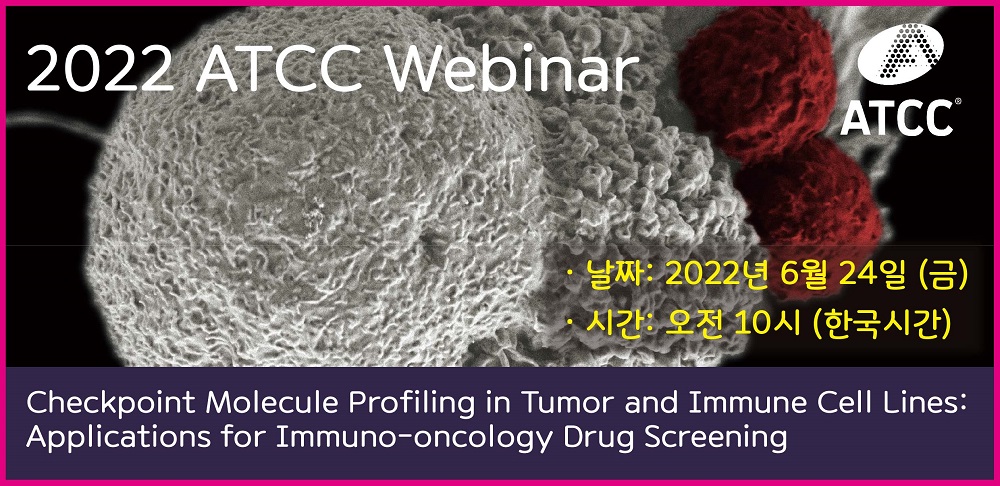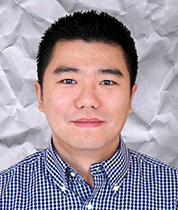
암의 면역 치료제 (cancer immunotherapy)를 개발하기 위해서는 생리학적으로 암세포와 유사한 세포 모델이 필요합니다. 이번 웨비나는 ATCC가 보유한 다양한 human tumor & immune cell line의 면역 관문 발현 (immune checkpoint profiling) 자료를 공유하고 실제 암환자의 sample과 어떤 유사점이 있는지 발표합니다. ATCC에서 제공되는 checkpoint protein profiling 자료는 생물학적 제제의 스크리닝 등 면역 치료제 개발에 중요한 자료 및 도구로 활용될 수 있을 것입니다.
Abstract
Modulating immune checkpoints is a promising approach for unleashing the potential of the anti-tumor immune response; however, cancer biologists need comprehensive data on the expression levels of checkpoint molecules for different cancer types to guide specific drug development plans. ATCC’s vast portfolio can be tapped by scientists to yield these essential checkpoint expression data. In this webinar, we present checkpoint protein profiling of T cell lines and tumor cell lines from various cancer types. He then shows the responses of the cell lines to several immunotherapies in a co-culture assay system with a human CD4+ T cell line and primary CD8+ T cells, demonstrating a unique and effective approach for checkpoint assay development.
Key Points
- Cancer biologists need physiologically relevant cell models to develop cancer immunotherapies
- ATCC’s vast portfolio of human tumor and immune cell lines was tapped to yield essential immune checkpoint expression data
- The endogenous expression of checkpoint molecules on the surface of tumor cells is comparable to patient samples
- Over 60+ tumor cell lines have been profiled for established and novel checkpoint molecules
- Checkpoint protein profiling of T cell lines and tumor cell lines provides a valuable tool in the screening of biologics as cancer immunotherapy treatment

Zhizhan Gu, PhD
Lead Scientist, ATCC
Dr. Zhizhan Gu, Lead Scientist and Immuno-oncology Group Leader of R&D at ATCC, has extensive experience studying cancer immunology, immune modulation, and solid tumor microenvironment. He has been a principal investigator both in academia as tenure-track assistant professor and industry as a lead scientist and director. His research focuses on cell adhesion, inter-cell signaling, cancer metastasis and single cell immunology. Dr. Gu received an MD in clinical medicine from Fudan University and a PhD in Molecular Pharmacology, Physiology & Biotechnology from Brown University. He also completed a 5-year postdoc in Immunology at Harvard Medical School.

